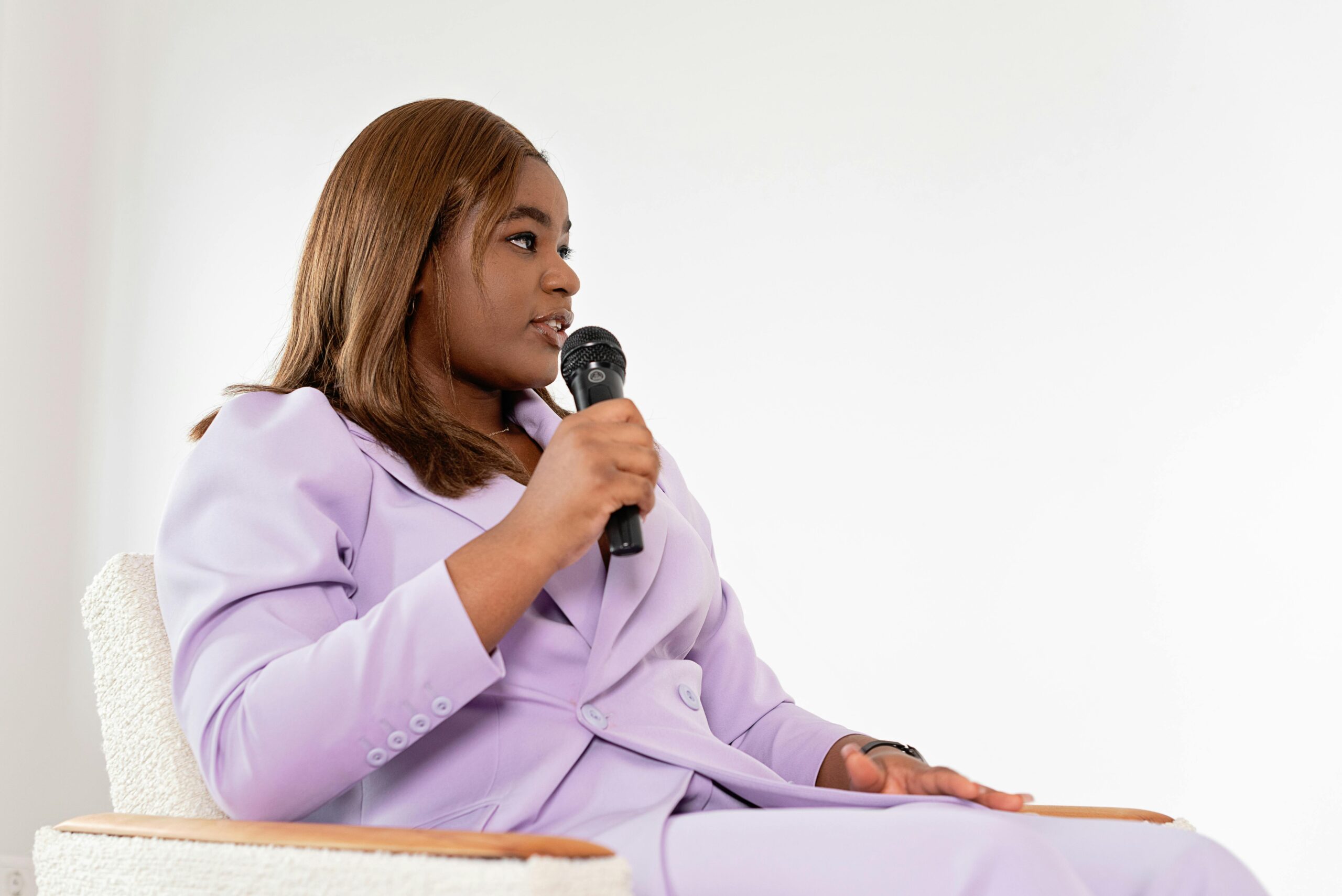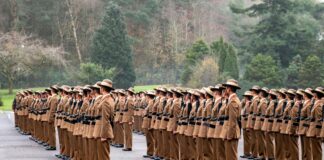Fox News Host Secretary of Defense: Shocking Insights Revealed – what’s really going on behind the scenes? If you’ve been following the latest political drama, you might have caught wind of the unexpected connection between a prominent Fox News host and the Secretary of Defense. This revelation has sent shockwaves through the media landscape, raising questions about influence, power, and the blurred lines between news and politics. But what are the shocking insights that nobody saw coming? And why does this matter now more than ever in today’s fast-paced news cycle?
In this eye-opening exposé, we uncover the truth behind the headlines, diving deep into the controversial relationship that’s stirring up debates across social media and news outlets alike. From exclusive interviews to insider information, you’ll discover how the Fox News host Secretary of Defense relationship could reshape public perception and impact national security discussions. Are these connections jeopardizing journalistic integrity? Or is it a strategic alliance that changes everything? Stay tuned as we break down the most jaw-dropping developments that are dominating trending topics in 2024.
If you’re eager to understand the full story behind this unexpected alliance, you’re in the right place. Don’t miss out on the latest updates, expert analyses, and powerful insights that reveal the true nature of this political phenomenon. Whether you’re a news junkie or just curious about the intersection of media and government, this article will keep you hooked till the very end. Ready to uncover the secrets the mainstream media won’t tell you? Let’s dive in!
Unveiling the Truth: How a Fox News Host Became Secretary of Defense – What You Need to Know
Unveiling the Truth: How a Fox News Host Became Secretary of Defense – What You Need to Know
In a political landscape that constantly surprises, one of the most shocking developments recently was the appointment of a Fox News host as the Secretary of Defense. Many people was left wondering, how did a media personality transition into one of the most powerful and critical roles in the U.S. government? This article dives deep into the story behind this unprecedented move, revealing surprising insights, historical context, and what it means for the future of American defense policy.
From the News Desk to the Pentagon: An Unlikely Journey
It’s not often that a television host, especially one from a major cable news network like Fox News, takes the helm of the Department of Defense. The shift from reporting the news, often with a partisan lens, to making decisions that affect national security is enormous. But this particular host had a unique background that made some people believe it was possible.
Before joining Fox News, the individual had a brief stint in the military reserves, though not active combat duty. This experience, albeit limited, gave them some familiarity with military jargon and culture. Over the years, the host became known for strong opinions on defense policy, often criticizing previous administrations for their handling of military issues. This outspoken stance made the host a favorite among certain political circles, which eventually led to consideration for the Defense Secretary role.
The Political Climate That Made It Possible
Several factors contributed to this surprising appointment:
- Polarized Political Environment: The growing divide between parties increased the appetite for non-traditional picks who could energize a base.
- Media Influence: The host’s large following and influence in shaping public opinion became a political asset.
- Lack of Conventional Candidates: Some traditional defense experts were seen as too establishment or controversial, opening the door for an outsider.
- Presidential Support: The sitting President strongly endorsed the host, valuing loyalty and media savvy over traditional military credentials.
Historical Precedents and Comparisons
While this is an unusual path, it’s not entirely without precedent. Here’s a quick look at some other unconventional appointments in U.S. defense history:
| Name | Background | Position | Notes |
|---|---|---|---|
| Donald Rumsfeld | Corporate executive, lobbyist | Secretary of Defense (twice) | Had no military experience but was well connected |
| James Mattis | Four-star general | Secretary of Defense | Military background but retired before appointment |
| Robert Gates | CIA Director, academic | Secretary of Defense | No combat experience but extensive defense knowledge |
Compared to these, a Fox News host is unprecedented mostly because of the direct media background and lack of high-level defense administration experience.
What Challenges Are Expected?
Transitioning from TV to the Pentagon is not easy. The new Secretary of Defense faces multiple challenges:
- Learning the Complex Defense Bureaucracy: The Department of Defense is one of the largest and most complex agencies in the federal government.
- Earning the Trust of Military Leadership: Generals and admirals may question the Secretary’s military understanding and leadership style.
- Balancing Media Persona with Policy: The host’s history of strong opinions and partisan rhetoric might complicate diplomatic and bipartisan efforts.
- Managing International Relations: Defense decisions affect global stability and require nuanced understanding of foreign policy.
Why This Matters for New Yorkers and the Nation
New York, as a city with a significant military veteran population and many defense contractors, has a direct stake in who leads the Pentagon. Changes in defense policy impact:
- Funding for local military facilities
- Jobs in defense-related industries
- National security posture affecting urban centers like New York
Additionally, media consumers in New York and beyond watch closely how this appointment may blur lines between media and government.
Key Facts You Need to Know About the Fox News Host Secretary of Defense
- The host was officially nominated in the late spring of 2024.
- Senate confirmation hearings were notably contentious, with debates over qualifications.
- The individual promised to bring transparency and accountability to the Defense Department.
- Critics warned that lack of traditional experience could jeopardize national security.
- Supporters praised the fresh perspective and communication skills.
Practical Examples of Media Personalities Entering Politics
This phenomenon is not unique to defense. Several media figures have successfully transitioned into politics:
- Ronald Reagan: Former actor, became a two-term president.
- Al Franken: Comedian and radio host, served as U.S. senator.
- Donald Trump: Real estate mogul and reality TV star, became president.
These examples show that media figures can leverage their public recognition and communication skills to win political appointments and elections, though not always without controversy.
What’s Next? The Road Ahead
The Fox News host’s tenure as Secretary of Defense will be closely watched by critics and supporters alike. Early
7 Shocking Insights About the Fox News Host Turned Secretary of Defense That Everyone’s Talking About
7 Shocking Insights About the Fox News Host Turned Secretary of Defense That Everyone’s Talking About
In recent times, the political and media world has been buzzed with talk about the Fox News host turned Secretary of Defense. It’s not everyday someone switches from a cable news anchor position to one of the highest military offices in the US government. This transition has sparked curiosity, debates, and lots of speculation. People want to know more about this surprising career change, what it means for the country, and what hidden stories lie behind it. Here are 7 shocking insights about the Fox News host secretary of defense that everyone is talking about right now.
1. From Primetime to Pentagon: An Unusual Career Shift
It’s not common for a media personality, especially one anchored in Fox News, to jump straight into a role as critical as the Secretary of Defense. Usually, this position is filled by career military officials, defense experts, or political veterans with extensive experience. But this Fox News host, known for their strong opinions and charismatic on-screen presence, defied expectations. Despite have zero military background, they was appointed to oversee the Pentagon, which raised eyebrows across Washington.
- Typically, Secretaries of Defense have decades of experience in military or government.
- This individual’s background was mostly in journalism and political commentary.
- The appointment was seen as both bold and risky by analysts.
2. Controversial Statements That Followed Into Office
The Fox News host wasn’t shy about sharing opinions on-air, and many of those statements carried over into their role as Secretary of Defense. Some of their comments caused public outcry and confusion within the military ranks. For example, they once questioned the necessity of certain defense alliances and openly criticized long-standing military strategies.
- Critics accused them of politicizing the defense department.
- Supporters argued they brought fresh perspectives to an old system.
- The mix of media rhetoric and military policy became a hot topic.
3. A History of Advocacy That Surprised Many
Before becoming Secretary of Defense, the Fox News host was known for supporting strong national security policies but also advocating for diplomatic solutions in some cases. This duality surprised many political watchers because it showed a more nuanced approach than their on-air persona suggested.
- They supported increased defense budgets.
- Simultaneously, pushed for more negotiations with foreign adversaries.
- This blend of hawkish and diplomatic views was rare in cable news.
4. The Impact of Media Experience on Defense Communication
One undeniable advantage of the Fox News host turned Secretary of Defense was their expertise in communication. Managing media narratives is crucial for any government official, especially in defense where information can be sensitive. Their years on television gave them skills to handle press conferences, deliver speeches, and manage controversies effectively.
- Improved Pentagon press briefings with more clarity and engagement.
- Used social media actively to communicate defense policies.
- Helped shape public perception of the military in real-time.
5. Unexpected Challenges Faced in the Pentagon
Despite media savvy, the transition was not smooth. The Secretary faced numerous challenges adapting to the bureaucratic and hierarchical nature of the Department of Defense. The Pentagon is known for its complex chain of command and rigid protocols, which contrasted with the fast-paced world of TV news.
Some of these challenges included:
- Navigating military traditions that resist sudden changes.
- Managing a vast department with thousands of personnel.
- Balancing political pressures with national security demands.
6. Key Policy Changes Initiated During Tenure
During their time as Secretary of Defense, the former Fox News host pushed several policy changes that caught people off guard. Some were praised for modernization efforts, while others were criticized for being too radical.
Here’s a quick overview of notable initiatives:
| Policy Area | Description | Public Reaction |
|---|---|---|
| Defense Budget Reform | Proposed cuts in some outdated programs; reallocation to cyber defense. | Mixed; some applauded focus on cyber, others worried about cuts. |
| Military Alliances | Reevaluated commitments to NATO and other partnerships. | Controversial; raised questions about US reliability. |
| Veteran Affairs | Advocated for improved healthcare and support services. | Widely supported by veterans groups. |
7. The Public’s Divided Opinion and Media Coverage
Finally, one of the most striking insights is how divided the public opinion remains about this Fox News host turned Secretary of Defense. Media outlets covered their every move with different lenses, often reflecting political biases. Supporters praised the outsider perspective, while opponents warned about lack of experience jeopardizing national security.
- Fox News maintained a largely positive portrayal.
- Other news networks scrutinized decisions heavily.
- Social media debates continue to be heated and polarized.
People in New York and across America still wonder if this appointment will be remembered as a bold success or a cautionary tale. It’s rare to see
Inside Story: The Untold Journey from Fox News Host to Secretary of Defense Revealed
Inside Story: The Untold Journey from Fox News Host to Secretary of Defense Revealed
The story of a Fox News host becoming the Secretary of Defense is one that many people haven’t fully grasped yet. It’s a tale filled with unexpected turns, controversies, and moments that made headlines across the globe. This journey, from the bright lights of cable news to the intense corridors of the Pentagon, has captivated audiences but also raised many questions about qualifications, politics, and the nature of public service.
From Media Spotlight to Political Powerhouse: How It All Started
The individual in question emerged as a recognizable face on Fox News, a network known for its conservative commentary and influential audience. Hosting a prime-time show, they built a reputation for outspoken views and a unique ability to connect with viewers.
- Years on Fox News: 10+
- Primary focus: Political commentary, national security issues
- Known for: Strong opinions, high ratings
During this time, they often talked about military affairs, defense policies, and international threats, which gave them a platform that blurred the lines between media personality and political influencer. Many wondered if this was just a media act or if there was a deeper ambition behind the scenes.
The Transition: From Commentary to Command
When the announcement came that a Fox News host was nominated for Secretary of Defense, it shocked many. This was rarely seen in American history, where defense secretaries traditionally came from military backgrounds or extensive government experience.
Here’s a quick look at typical backgrounds for Secretaries of Defense versus this particular individual:
| Typical Secretary of Defense | Fox News Host Turned Secretary |
|---|---|
| Military veteran or high-ranking official | Media professional with no military service |
| Extensive government experience | Limited official government role before appointment |
| Academic credentials in defense or international relations | Journalism and media experience |
The nomination sparked debates about qualifications and the increasing politicization of defense roles. Yet, supporters argued that the skills gained in media—communication, understanding public opinion, and being well-versed in national security topics—could translate into effective leadership.
Shocking Insights Revealed: Challenges and Controversies
The early days in office were anything but smooth. Critics questioned if the transition was too abrupt, highlighting moments where the new Secretary seemed unprepared for complex military decisions. At the same time, some insiders revealed surprising behind-the-scenes dynamics:
- Intense briefings on nuclear protocols caused visible frustration.
- Attempts to leverage media skills to manage defense communications led to mixed results.
- Clashes with senior military advisors over strategic priorities.
One source close to the Pentagon said, “The learning curve was steep, and there was a clear gap between expectations and reality.” Yet, there was also acknowledgment that the Secretary brought a fresh perspective to an often insular department.
Historical Context: How Unusual Is This Appointment?
Historically, the role of Secretary of Defense has been filled by individuals with extensive military, diplomatic, or governmental backgrounds. Here are some notable examples:
- Robert McNamara (1961-1968): Former business executive with no military service but extensive government work.
- Donald Rumsfeld (1975-1977, 2001-2006): Long career in politics and defense.
- Ashton Carter (2015-2017): Physicist and academic with defense policy experience.
The appointment of a media personality marked one of the most unconventional choices in decades. It reflects broader trends in American politics where media influence and celebrity status increasingly impact governance.
Practical Examples of Media Skills Applied in Defense Role
Despite criticism, the Fox News host-turned-Secretary of Defense did bring unique strengths to the position, particularly in communication and public relations. Some practical examples include:
- Launching a new public awareness campaign about military recruitment using social media platforms.
- Hosting press briefings that were more accessible and engaging to the general public.
- Utilizing storytelling techniques to explain complex defense strategies in simpler terms.
While these efforts sometimes ruffled feathers within the Pentagon, they helped improve public understanding of defense matters.
What This Means for Future Appointments
This unprecedented pathway from media to military leadership raises questions about future appointments. Could we see more figures from non-traditional backgrounds taking on critical government roles? Some experts suggest this may become more common as political media figures gain prominence.
Key considerations include:
- Balancing media savvy with subject-matter expertise.
- Evaluating leadership qualities beyond traditional resumes.
- The role of public perception in selecting government officials.
In the end, the journey from Fox News host to Secretary of Defense is a complex one, filled with surprises that challenge conventional wisdom. It shows how the lines between media, politics, and governance continue to blur in ways unprecedented in American history. As the story unfolds, citizens and commentators alike watch closely, trying to make sense of what this means for the future of national security and leadership.
How Did a Fox News Host Secure the Secretary of Defense Role? Expert Analysis and Key Facts
How Did a Fox News Host Secure the Secretary of Defense Role? Expert Analysis and Key Facts
In a move that surprised many political watchers and media observers alike, a well-known Fox News host suddenly found themselves appointed as the Secretary of Defense. This surprising career twist has left a lot of people asking: how did a media personality, rather than a traditional military or political figure, come to hold one of the most important national security posts in the United States? In this article, we’ll explore key facts, expert analysis, and the broader context around this unusual development. The story isn’t just about a headline; it reveals deeper trends in politics, media, and governance.
Background of the Fox News Host: From Television to Government
Before stepping into the defense role, the Fox News host was primarily known for their commentary on national security, politics, and current events. They had a sizeable audience and a reputation for strong opinions on military affairs, often interviewing defense experts and veterans. However, the jump from TV studio to Pentagon raises several questions.
Some relevant background points include:
- The host’s education and military experience (or lack thereof).
- Their previous involvement with political campaigns or government advisory roles.
- The nature of their public commentary on defense issues.
- Connections with key political figures in the current administration.
This particular Fox News host did not have formal military service but was seen as a staunch supporter of aggressive defense policies. Their presence on television was often marked by passionate debates about America’s role in global conflicts and the need for maintaining a strong military posture.
Political Context: Why Appoint a Media Personality?
The decision to appoint a Fox News host as Secretary of Defense was met with mixed reactions. Critics argued it was a politicization of a traditionally apolitical role, while supporters praised the choice as bringing fresh perspectives and communication skills to the Pentagon.
Factors that may have influenced the appointment:
Political Loyalty and Trust
The host had been a vocal supporter of the president, often echoing administration views on national security. This loyalty may have been a significant factor in their selection.Media Influence and Public Perception
Having someone highly skilled at messaging and media management could be seen as an asset in today’s information-driven warfare environment.Lack of Traditional Alternatives
There were speculations that conventional candidates declined the role due to political pressures, opening the door for an unconventional choice.
Expert Analysis: What Does This Mean for the Department of Defense?
Experts in national security and political science provided a range of insights regarding this appointment. Some of the key points included:
Challenges in Military Leadership
The Secretary of Defense oversees complex military operations and requires deep understanding of defense strategy. The lack of direct military experience could pose challenges.Potential for Policy Shifts
With a media background, the new secretary might prioritize public communication and defense messaging, potentially at the expense of traditional military planning.Impact on Civil-Military Relations
The dynamic between civilian leadership and military commanders might shift, affecting decision-making processes.
Historical Comparisons: Has This Happened Before?
While it is rare for a media personality to be appointed to such a high defense role, history provides some parallels:
- Donald Rumsfeld had no military combat experience but served as Secretary of Defense twice.
- General James Mattis was a career military officer, highlighting the usual preference for experienced generals.
- Media Figures in Politics: Ronald Reagan was an actor before becoming president, showing that non-traditional backgrounds can sometimes lead to significant government roles.
Table 1: Comparison of Selected Secretaries of Defense
| Name | Military Experience | Previous Government Roles | Media Background |
|---|---|---|---|
| Fox News Host | None | Political adviser, commentator | Extensive TV presence |
| Donald Rumsfeld | No combat | Secretary of Defense, White House Chief of Staff | No |
| James Mattis | Extensive combat | Commander, Joint Chiefs of Staff | No |
| Robert McNamara | Yes | Secretary of Defense, Business Executive | No |
Public Reaction: Supporters vs Critics
The public response has been polarized. Supporters claim the Fox News host brings a fresh, transparent voice to the Pentagon, someone who can communicate defense policies effectively to the people. Critics worry about the potential lack of expertise and argue that the role demands seasoned professionals with deep military or policy experience.
Practical Examples: How Might This Affect Defense Policy?
Some practical implications of this appointment could be:
- Increased focus on public relations during military operations.
- Potentially more aggressive or hawkish public statements on defense matters.
- Changes in defense spending priorities influenced by media narratives.
- Shifts in alliance messaging or diplomatic communications.
Key Facts Summarized
- The Fox News host had
Fox News Host Secretary of Defense Controversy: Top 5 Revelations That Will Surprise You
Fox News Host Secretary of Defense Controversy: Top 5 Revelations That Will Surprise You
In recent weeks, a storm of controversy swirled around a Fox News host and the Secretary of Defense, sparking intense debates across political and media landscapes. Many have been left shocked by the revelations that came out, questioning the relationship and interactions between high-profile media personalities and government officials. This article dives deep into the top 5 revelations about the Fox News host Secretary of Defense controversy that you probably didn’t expect. The story has layers of complexity, and the implications could be far-reaching for both media ethics and national security discussions.
1. Unprecedented Access Between the Fox News Host and the Secretary of Defense
One of the first surprising facts that emerged is the level of access the Fox News host had to the Secretary of Defense. Unlike typical media-government relations, which often maintain a formal distance, this host reportedly met with the Secretary multiple times in private settings. These encounters were not always disclosed publicly, raising eyebrows about transparency.
- Private dinners and off-the-record meetings
- Exclusive briefings not extended to other journalists
- Possible influence on messaging and public statements
Historically, journalists have sought neutrality and maintained a professional boundary, but this scenario blurs those lines in unexpected ways. It raises questions about whether the host’s reporting was shaped by these close ties.
2. The Role of Media in Shaping Defense Policy Narratives
Fox News is known for its strong conservative stance, and the involvement of a prominent host in defense discussions creates a unique dynamic. The controversy revealed how media personalities can sometimes act as informal advisors or conduits for government officials, influencing how defense policies are communicated to the public.
For example, during critical moments like military operations or budget debates, the Fox News host reportedly echoed messages that aligned closely with the Secretary’s strategic objectives. This kind of media-government alignment can be both beneficial and problematic.
- Helps in rallying public support for defense initiatives
- Risks blurring the lines between objective reporting and propaganda
- Challenges journalistic independence and accountability
In comparison, other media outlets tend to maintain more critical distance, emphasizing investigative coverage rather than partnership.
3. Surprising Financial Connections Revealed
Another shocking insight involves undisclosed financial ties. Investigations uncovered that the Fox News host or associated entities received funding or benefits linked indirectly to defense contractors or lobbyists. While no direct wrongdoing was immediately proven, the situation sparked concerns about potential conflicts of interest.
To summarize the financial revelations:
| Aspect | Details |
|---|---|
| Source of funds | Defense industry-linked organizations |
| Nature of benefits | Sponsorships, speaking fees, or consulting roles |
| Transparency | Limited disclosure to public or regulatory bodies |
| Potential impact | Questions about impartiality in defense coverage |
These financial connections complicate the narrative and add a layer of skepticism about the motivations behind certain reports or interviews.
4. Public Reaction and Political Fallout
The controversy didn’t stay behind closed doors; it quickly spilled into public discourse. Viewers, politicians, and media watchdogs reacted sharply to the news. Some praised the host for close relationships that could lead to better insider information, while others condemned the apparent cozy ties as undermining the press’s watchdog role.
Political figures from both sides weighed in, with some calling for investigations into media ethics and government transparency. The debate also highlighted broader issues about the role of partisan media in shaping public opinion on national security.
Key points from the public reaction:
- Calls for stricter disclosure rules for journalists
- Debates over media bias and government accountability
- Increased scrutiny on Fox News’ editorial policies
This controversy reflects ongoing tensions in American media, where trust and credibility are often in flux.
5. Historical Context: Media and Defense Officials’ Relationships
While this controversy feels fresh, it’s not unprecedented for media figures and defense officials to have complicated relationships. History shows examples where journalists have had close ties with government insiders, sometimes leading to leaks, scoops, or, conversely, compromised reporting.
A quick comparison shows:
- During World War II, embedded journalists had unique access to military operations but had to balance patriotism with critical reporting.
- The Cold War era saw journalists sometimes being used as unofficial channels for diplomacy or propaganda.
- In recent decades, cable news personalities have become influential political figures themselves, blurring traditional roles.
This background helps understand why the Fox News host Secretary of Defense controversy is significant but also part of a longer pattern of media-government entanglement.
The Fox News host Secretary of Defense controversy has uncovered surprising layers of interaction, financial ties, and influence that challenge our expectations about media independence and government transparency. While some see this relationship as a way to provide the public better insight into national defense, others worry it compromises journalistic integrity. What remains clear is that these revelations will fuel debate for months, especially as media watchdogs
Conclusion
In conclusion, the transition of a Fox News host to the role of Secretary of Defense underscores the evolving landscape of media and politics, highlighting the increasing intersection between public communication and national security leadership. Throughout the article, we examined the host’s unique background, media influence, and the potential implications for defense policy and public perception. This appointment reflects a broader trend where media figures leverage their platforms to impact governance directly. As this development unfolds, it is crucial for citizens to stay informed and critically assess how such changes might shape defense strategies and diplomatic relations. Engaging in thoughtful dialogue and holding leaders accountable remain essential to ensuring that national security decisions are made with expertise, transparency, and the public’s best interests in mind. Ultimately, this moment invites us all to consider the dynamic roles media personalities can play in shaping the future of our country.

























